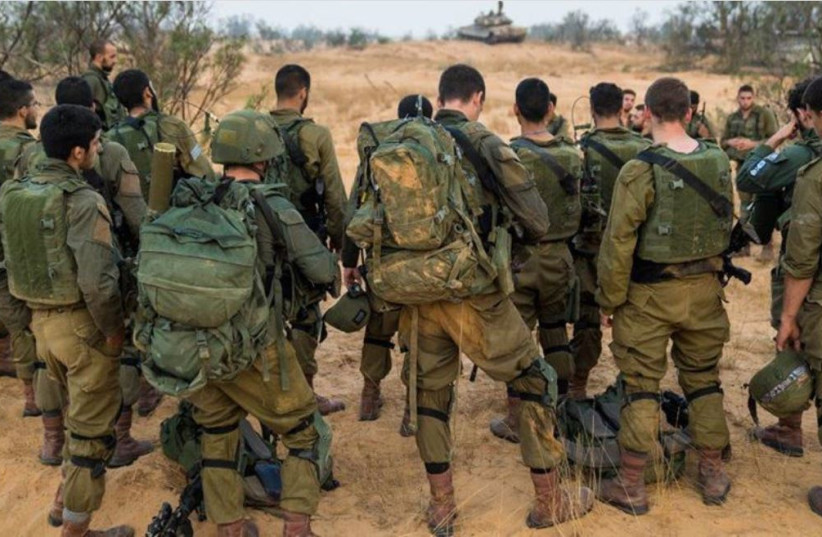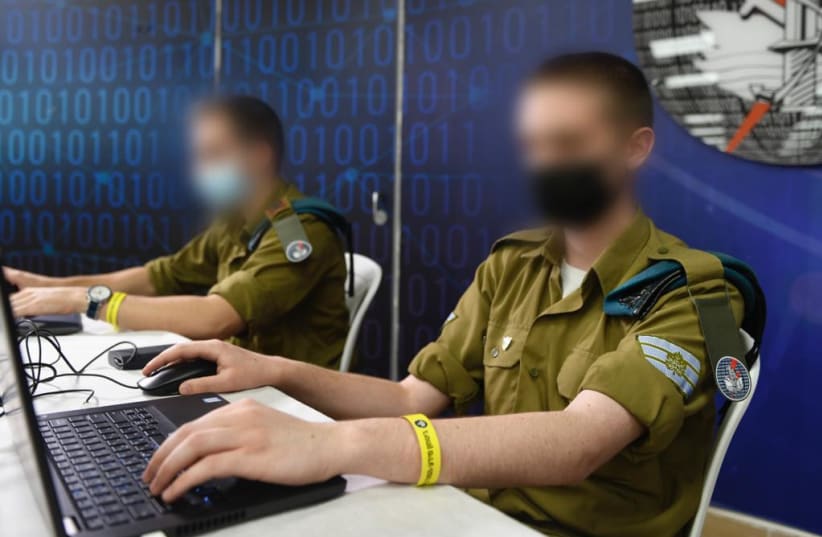The Health Ministry published a new list of regulations for the IDF in order to handle the coronavirus outbreak in Israel, which is seeing its fourth wave while simultaneously rolling out the third booster shot for its adult citizens.
Similar to the national guidelines, the IDF rules focus on minimizing mass infection and managing isolation.
So what does this mean for servicemen getting ready for another week at their base? Will they be home next Saturday? Here are the new instructions:
Vaccines
- Servicemen and medical staff above 30, as well as soldiers with a medical recommendation for the shot, can receive the third COVID vaccination as long as five months have transpired since their second jab.
Gatherings
- Gatherings are restricted to 500 participants in an open area.
- No food is allowed during indoor meetings.
- All ceremonies are to be conducted outside in an open space, with a maximum of 50% capacity.
- At events with over 500 participants, invitees must present a Green Pass or negative COVID PCR test. For example, the Officers Graduating Ceremony at Bahad 1 or other end-of-training ceremonies where parents and family members are invited to come and see their soldier receive his or her badge or beret.
- Children of career soldiers are not allowed into the army bases. The only exception is newborn children to breastfeeding mothers, at the approval of the commanding officer.
- Families are not permitted entry into the recruitment base.
- Service and infrastructure workers are allowed entry into bases only after receiving clearance.
- Gyms will only operate on closed bases, and training will be permitted by capsules according to companies and be available to vaccinated soldiers or those who have recovered from COVID.
The most difficult challenge in dealing with IDF soldiers in regards to corona is how to handle going on leave. Battalions of soldiers live and operate closely together throughout the week, leave and see their families over Shabbat, and then return to close quarters. Will soldiers remain in lockdown?


For now, the guidelines say no. However, under these instructions, a weekly situation assessment will take place with the Commander of the Operations Directorate or the deputy Chief of Staff, and this decision could still change before the holidays.
In the meantime, what happens to a soldier who came into contact with a positive COVID patient? According to the regulations, the soldier would need to be removed from the unit and transferred in a specified unit vehicle - not on public transportation - to a location where she or he can remain isolated. Lone soldiers will be able to isolate at an army site after coordinating with their unit's HR command.
What about trips abroad? Soldiers require the approval of their Command Officer to leave the country and need 24-hour isolation upon their return, pending a negative test. Red (banned) countries are off-limits to servicemen and women. Soldiers can only travel there for "operational requirements," under orders of the head of the Operations Directorate and needing seven or 14 days of isolation when they return.
Additionally, each unit, from battalion level and up, must establish a team to monitor the implementation of these regulations.
The IDF has seen a rise in numbers parallel to the rest of the country, with over 2,000 active cases as of last week.
